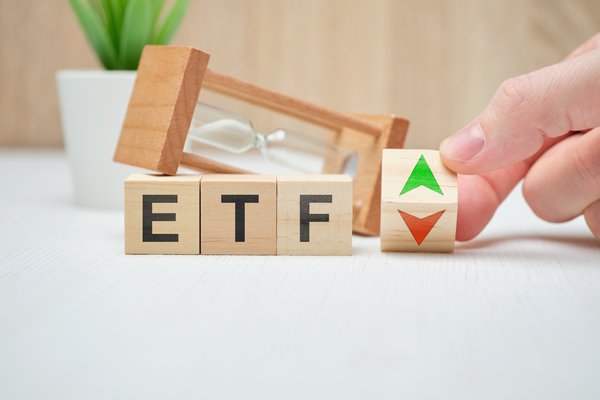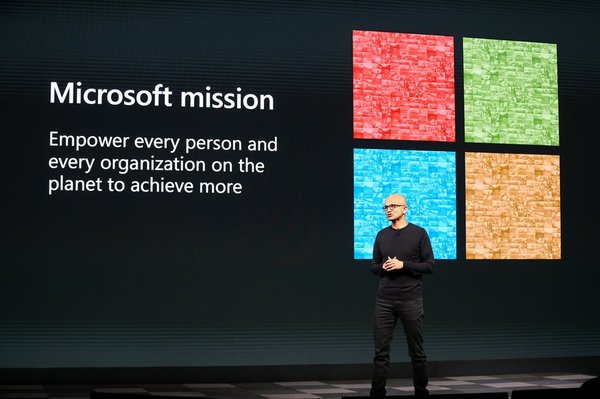As it turns out, investing for the greater good can be profitable, too. That's the story behind the steep rise in ESG investing over the past several years. Investors are flocking to the environmental, social, and corporate governance (ESG) investing approach by buying shares in ESG-focused funds. In 2020 alone, sustainability-minded investors committed $51 billion to ESG funds and sparked the launch of 71 new ones.
Why have ESG funds become so popular? During market contractions in 2018 and 2020, companies with solid ESG track records showed more resilience than their non-ESG peers. As a broader point of comparison, the S&P 500 ESG Index has outperformed the standard S&P 500 (SNPINDEX: ^GSPC) over the past one-year, three-year, five-year, and 10-year reporting periods.
What are ESG funds?
ESG funds invest in companies that actively manage their environmental, social, and governance risks. These companies generally have sweeping initiatives to achieve some combination of the following:
- Improve energy efficiency
- Reduce emissions
- Create social advancement opportunities within their communities and workforces
- Prevent human rights violations throughout their supply chains
- Enforce ethical business practices
- Create board independence and reporting transparency
In a nutshell, companies that prioritize ESG are good corporate citizens dedicating significant resources to effecting positive change and minimizing negative impacts.

Beyond the focus on companies with excellent corporate citizenship, ESG funds function like any other investment fund. They can be mutual funds or exchange-traded funds (ETFs). When you buy shares in an ESG fund, you own a slice of the fund's holdings and participate in the fund's performance.
Best nine ESG funds to add to your portfolio
Identifying the best ESG funds is somewhat subjective since some types of funds may suit your investment needs better than others. Here's a look at nine top ESG funds to add to your portfolio:
| iShares ESG Aware MSCI USA ETF (NASDAQ:ESGU) | 2016 | $16 billion | 0.15% | 17.86% annualized |
| SPDR S&P 500 ESG ETF (NYSEMKT:EFIV) | 2020 | $208 million | 0.10% | 24.20% |
| Fidelity U.S. Sustainability Index Fund (NASDAQMUTFUND:FITL.X) | 2017 | $1.1 billion | 0.11% | 17.83% annualized |
| Vanguard FTSE Social Index Fund Admiral Shares (NASDAQMUTFUND:VFTA.X) | 2019 | $12 billion | 0.14% | 24.04% annualized |
| Nuveen ESG Mid-Cap Growth ETF (NYSEMKT:NUMG) | 2016 | $292 million | 0.40% | 21.10% annualized |
| Calvert International Responsible Index Fund (NASDAQMUTFUND:CDHI.X) | 2015 | $450 million | 0.49% | 9.23% annualized |
| Pax Ellevate Global Women's Leadership Fund (NASDAQMUTFUND:PXWEX) | 1993* | $822 million | 0.80% | 9.24% annualized* |
| iShares ESG Aware MSCI EM ETF (NASDAQ:ESGE) | 2016 | $7.2 billion | 0.25% | 13.88% annualized |
| iShares ESG Aware 1-5 Year USD Corporate Bond ETF (NASDAQ:SUSB) | 2017 | $758 million | 0.12% | 3.36% annualized |
*Launched in 1993 but reorganized in 2014; fund's annualized return reflects performance since 2014. Data sources: iShares, SPDR, Fidelity, Vanguard, Nuveen, Impax Asset Management.
1. iShares ESG Aware MSCI USA ETF
This ETF tracks the MSCI USA Extended ESG Focus Index. The index mimics the performance of the broader market while excluding companies involved in civilian firearms, controversial weapons, tobacco, thermal coal, and oil sands. Top holdings by value include Apple (NASDAQ:AAPL), Microsoft (NASDAQ:MSFT), and Amazon (NASDAQ:AMZN).
This ETF is appropriate as an anchor position for new ESG investors who want to invest in sustainability without materially altering their risk profiles. As long as the fund meets its goal, the performance should be near what you'd see in a S&P 500 Index fund.
2. SPDR S&P 500 ESG ETF
This SPDR ETF is the youngest fund on our list, but it tracks the S&P 500 ESG Index, which has substantially more history. As noted above, the S&P 500 ESG Index has outperformed the traditional S&P 500 consistently over the past 10 years.
S&P 500 companies can be excluded from the ESG index for involvement in cluster weapons, land mines, chemical weapons, nuclear weapons, tobacco, or thermal coal extraction. Companies that have a United Nations Global Compact score in the bottom 5% are also dropped from the ESG index. The Global Compact score is based on the company's adoption of the 10 U.N. Global Compact principles — U.N.-defined business standards covering human rights, employee rights, the environment, and anti-corruption.
The top three holdings by value in this fund are also Apple, Microsoft, and Amazon, although their weights are slightly higher in this fund compared with the iShares ESG Aware MSCI USA ETF.
3. Fidelity U.S. Sustainability Index Fund
This index fund by Fidelity tracks the MSCI USA ESG Leaders Index, which includes companies with the highest ESG ratings in their sectors. Companies substantively involved in alcohol, tobacco, gambling, nuclear power, weapons, and civilian firearms are ineligible.
Sector exposure with this fund is similar to the prior two funds on this list. Technology stocks comprise 27% of the value of the fund's holdings, followed by positions in consumer discretionary, healthcare, communication services, and financials, each weighted by value between 10.7% and 13.5%.
Microsoft, Alphabet (NASDAQ:GOOG)(NASDAQ:GOOGL), and Tesla (NASDAQ:TSLA) are the fund's top four positions.
4. Vanguard FTSE Social Index Fund Admiral Shares
This Vanguard index fund, also relatively new, tracks the FTSE4Good US Select Index. The index's screening process excludes seven industries:
- Adult entertainment
- Alcohol
- Tobacco
- Weapons
- Fossil fuels
- Gambling
- Nuclear power
Companies that don't meet diversity criteria are also ineligible, as are companies that fall short of meeting the U.N. Global Compact principles.
This fund has heavier technology exposure, at 31.80%, than the other three large-cap funds described above. Once again, Apple, Microsoft, and Amazon are the largest holdings.
5. Nuveen ESG Mid-Cap Growth ETF
This ETF holds about 60 mid-sized, U.S.-based companies that are rapidly growing, as measured by projected earnings per share (EPS), historic EPS, and the historic growth of sales per share.
You won't find Apple and Amazon in this ETF since the fund features smaller companies. Even so, you may recognize a few companies held by the portfolio, such as Burlington Stores (NYSE:BURL), Pinterest (NYSE:PINS), Etsy (NASDAQ:ETSY), and GoDaddy (NYSE:GDDY).
The fund tracks the TIAA ESG USA Mid-Cap Growth Index, which includes companies with high ESG scores and low carbon scores while screening out controversial business activities.
6. Calvert International Responsible Index Fund
This ESG index fund invests in large-cap companies based in developed countries outside the U.S. The portfolio has more than 800 stocks, with an 18.5% concentration in Japan. U.K. stocks comprise nearly 12% of the portfolio, followed by French and Swiss companies at about 8.3% each. Top holdings include Taiwan Semiconductor Manufacturing (NYSE:TSM), Nestle (OTC:NSRGY), and Roche (OTC:RHHBY).
The fund uses Calvert's own ESG methodology — called the Calvert Principles — and limits exposure to companies involved in gambling, civilian weaponry, alcoholic beverages, tobacco, and testing on animals.

7. Pax Ellevate Global Women's Leadership Fund
This cause-specific ESG fund invests in companies that support the advancement of women in the workplace. That support is demonstrated by gender diversity on the board and in senior leadership, along with gender pay equity and policies that promote the hiring, training, and retention of women.
There are more than 400 large-cap stocks in this fund's portfolio, and 68% of them are based in the U.S. Top holdings include Microsoft, Amazon, and Estee Lauder (NYSE:EL).
8. iShares ESG Aware MSCI EM ETF
This iShares ETF provides ESG-screened exposure to emerging markets. The fund's goal is to produce returns within 100 basis points of unscreened emerging market indexes while prioritizing companies with higher ESG scores. The portfolio includes more than 350 large-cap and mid-cap stocks primarily from China, Taiwan, South Korea, India, South Africa, Brazil, and Russia.
Financial companies comprise nearly 23% of the fund's value, and information technology stocks are a close second at 21%. The other top-five sectors are consumer discretionary, communications, and materials.
9. iShares ESG Aware 1-5 Year USD Corporate Bond ETF
This ESG ETF holds investment-grade, U.S. dollar-denominated corporate bonds with maturities ranging from one to five years. The fund tracks the Bloomberg MSCI US Corporate 1-5 Year ESG Index, which includes issuers with the highest MSCI ESG scores in their sectors. As with other iShares funds, companies substantively involved in civilian firearms, controversial weapons, tobacco, thermal coal, and oil sands are ineligible for inclusion in this ETF.
Exclusive ESG Fund Q&A with Professor Katherine Klein
Professor Klein is the Vice Dean of the Wharton Social Impact Initiative and the Edward H. Bowman Professor of Management at The Wharton School.

The Motley Fool: According to a recent study by The Motley Fool, 25% of Gen Z and millennial investors reported owning ESG stocks, while 32% said they don’t know what an ESG stock is. While it seems to be gaining popularity, why do you think ESG funds are still not as well-known and do you anticipate this figure to change in the future?
Professor Klein: I’m not surprised that the concept of ESG – and even the term itself – is not well-known among many young (and old) individual investors. When I’ve done an informal survey of friends and family, I’ve observed the same thing: Many people who are quite interested in and engaged in investing don’t know what ESG means. Many haven’t heard or read the term before.
I think a key reason that ESG funds are not well known is that the concept of ESG performance is multifaceted, complex, and abstract. ESG doesn’t mean one thing. It means three things. And those three things are neither intuitively obvious from the names or initials alone, nor clearly intercorrelated. That is, E, S, and G don’t necessarily go hand-in-hand. More on that below.
The meaning of E – environmental performance – is most intuitively obvious and, perhaps relatedly, E is the ESG dimension that has the most commonly accepted metrics. S – social performance – is much less intuitively obvious. What is the social performance of a company? Those unfamiliar with the meaning of ESG might guess that S, social performance, is – what? – how fun the company’s holiday parties are? How strong the company’s presence is on social media? How important it is to be friendly and outgoing if you want a job at the company? How much the company gives to charity? Only one of these guesses – the last one – is at all on target, but charitable donations are, of course, only one facet of a company’s social performance. The meaning of G – governance – is even less intuitively obvious.
I suspect that if you went to a marketing firm and asked for their advice in marketing the term ESG, the first thing they’d say is, “Get rid of the acronym and get rid of those three words, too. There’s got to be a shorter, clearer way to describe what you’re trying to get at.” But, the term and the initials ESG are probably here to stay. Given the growth of ESG funds – despite the confusion and uncertainty regarding the meaning of the term – I do think more and more people will learn the meaning of the term over the next several years.
The Motley Fool: What sort of regulations do you foresee that will ultimately prevent companies from inflating their sustainable practices (a.k.a. greenwashing) and how can consumers make more educated decisions on which ESG funds to invest in?
Professor Klein: This is a really important question and a challenging one to answer. We are starting to see calls for regulations that would greater transparency and stronger corporate disclosures to back-up ESG claims and counter greenwashing (and other forms of impact washing). The more corporations must transparently share their data and practices to back-up their ESG claims, the easier it will be to evaluate a company’s ESG performance.
But, still – even with substantial transparency and disclosure – making educated decisions about which ESG funds to invest in will remain a challenge. ESG is, as I’ve noted, a multifaceted, complex, and abstract concept. A single company may rank high on some “S” metrics (for example, board gender diversity) and weak on other “S” metrics (for example, working conditions in the supply chain). So, assigning a summary number to even a single dimension of ESG for a single company is challenging and perhaps not very informative. Assigning a summary number to a single company for all three dimensions of ESG is more challenging and less informative. Assigning a summary number to an ESG fund comprised of many companies is yet more challenging and less informative.
I hope that the market for information works – that some ratings firms will be shown to be particularly thorough and thoughtful in rating firms’ ESG practices. And I think there is and will continue to be a huge need for independent, academic research on the meaning and consequences of ESG. Then consumers will stand a better chance of making educated choices about which ESG funds they want to invest in.















